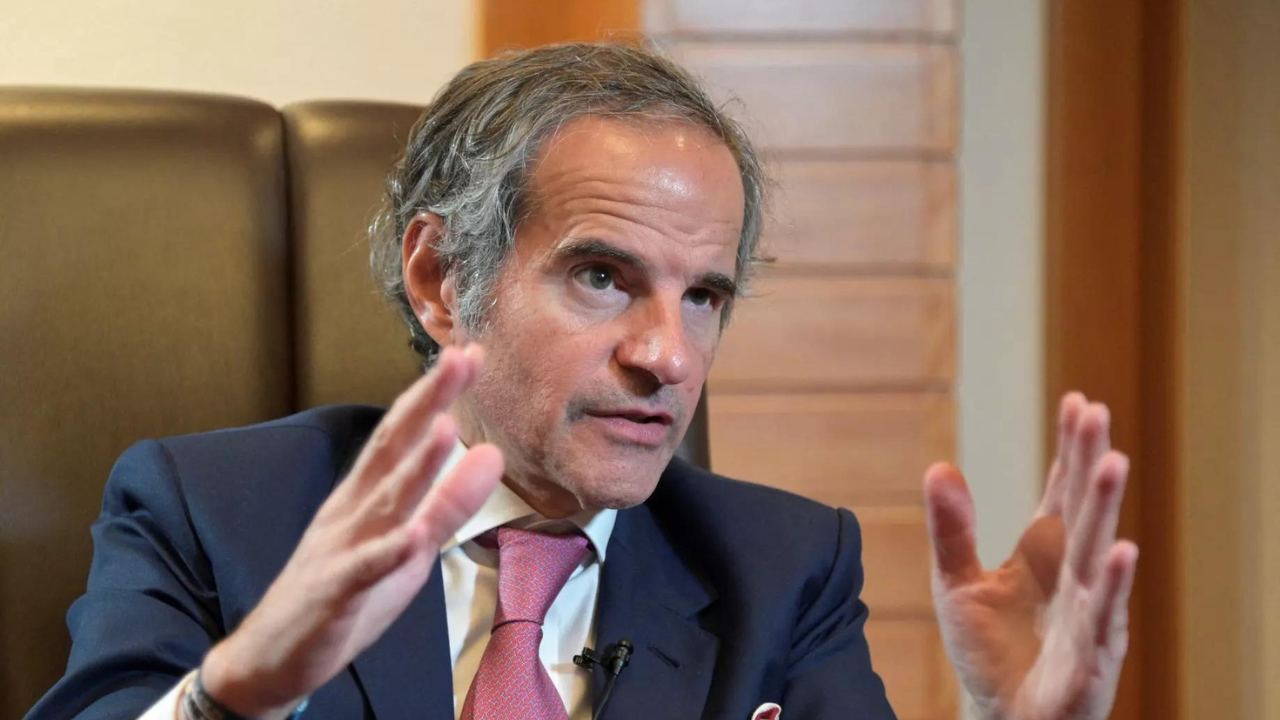[ad_1]
The head of the UN’s nuclear watchdog said on Tuesday he supports Japan‘s push to hold summit talks with North Korea, even if discussion about Pyongyang’s nuclear build-up is initially off the table.
Japan’s Prime Minister Fumio Kishida has said he wants to hold talks with North Korean leader Kim Jong Un “without any preconditions” and is personally overseeing efforts to realise the first such leaders summit in 20 years.In a rare response, Kim’s sister, who serves in the ruling Workers’ Party, last month said Kishida may one day visit Pyongyang.
The IAEA has not had access to North Korea since Pyongyang expelled its inspectors in 2009 but has raised repeated concerns about its nuclear advances and growing nuclear arsenal.
Asked if he would support Japan’s talks with North Korea even if the issue of nuclear proliferation was not discussed, IAEA chief Rafael Grossi told Reuters in an interview in Tokyo:
“It is very important to engage. The conditions of that dialogue, I would not pretend to tell Prime Minister Kishida what to do….But what I can say is that engagement is indispensable.”
“Every political dialogue has timings, has formats and sequences that may exist…No conversation is not a good idea.”
Kishida’s push to hold talks with Kim is focused on trying to secure the return of citizens abducted by North Korea decades ago.
During his Japan trip, Grossi will hold talks with Kishida and visit the crippled Fukushima nuclear plant where the IAEA is helping oversee the release of treated waste water into the ocean.
The release, which began in August, was criticised by some local residents and saw China and Russia impose a ban on Japanese seafood over safety fears.
Grossi said China’s response was a “political decision” and that the IAEA’s independent testing has shown the discharge is safe.
He plans to visit Beijing for the first time since the release began later this year and said he is open to discussing China’s request to strengthen monitoring of the water release.
“We as IAEA are open to analyse ways in which this could be strengthened. But in our opinion, what we are providing the international community is neutral, impartial, scientifically proven information,” he said.
Japan’s Prime Minister Fumio Kishida has said he wants to hold talks with North Korean leader Kim Jong Un “without any preconditions” and is personally overseeing efforts to realise the first such leaders summit in 20 years.In a rare response, Kim’s sister, who serves in the ruling Workers’ Party, last month said Kishida may one day visit Pyongyang.
The IAEA has not had access to North Korea since Pyongyang expelled its inspectors in 2009 but has raised repeated concerns about its nuclear advances and growing nuclear arsenal.
Asked if he would support Japan’s talks with North Korea even if the issue of nuclear proliferation was not discussed, IAEA chief Rafael Grossi told Reuters in an interview in Tokyo:
“It is very important to engage. The conditions of that dialogue, I would not pretend to tell Prime Minister Kishida what to do….But what I can say is that engagement is indispensable.”
“Every political dialogue has timings, has formats and sequences that may exist…No conversation is not a good idea.”
Kishida’s push to hold talks with Kim is focused on trying to secure the return of citizens abducted by North Korea decades ago.
During his Japan trip, Grossi will hold talks with Kishida and visit the crippled Fukushima nuclear plant where the IAEA is helping oversee the release of treated waste water into the ocean.
The release, which began in August, was criticised by some local residents and saw China and Russia impose a ban on Japanese seafood over safety fears.
Grossi said China’s response was a “political decision” and that the IAEA’s independent testing has shown the discharge is safe.
He plans to visit Beijing for the first time since the release began later this year and said he is open to discussing China’s request to strengthen monitoring of the water release.
“We as IAEA are open to analyse ways in which this could be strengthened. But in our opinion, what we are providing the international community is neutral, impartial, scientifically proven information,” he said.
[ad_2]
Source link


